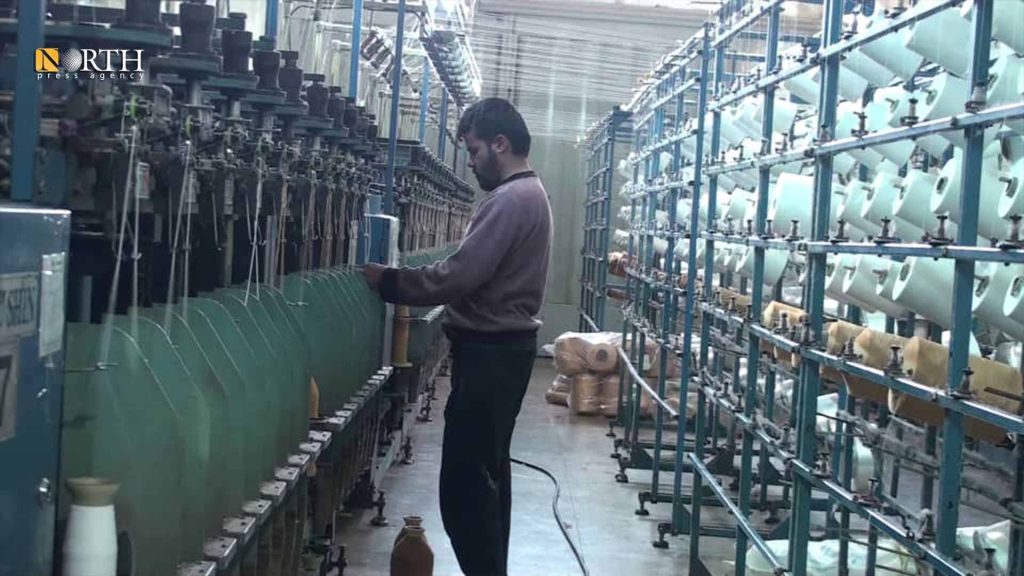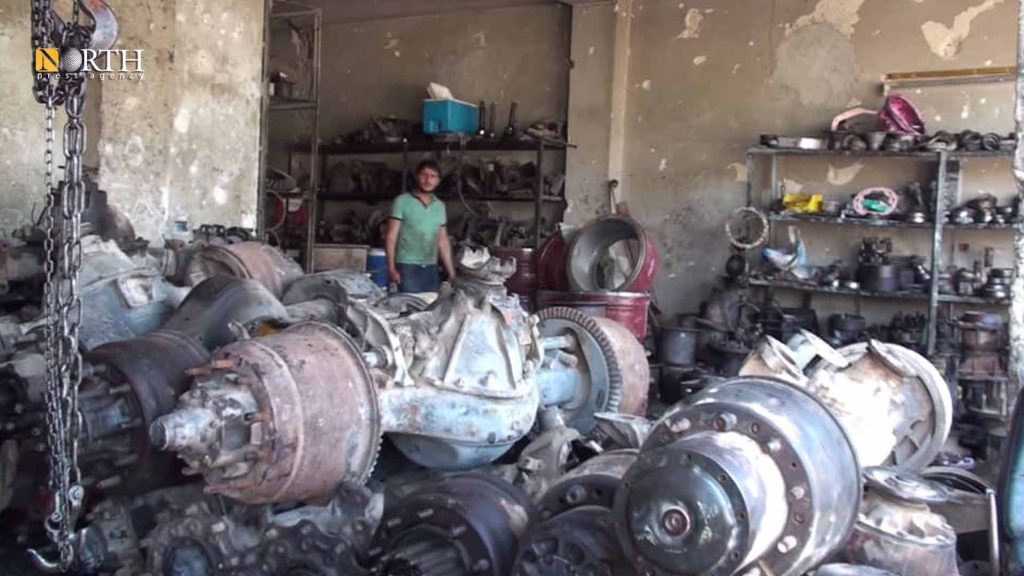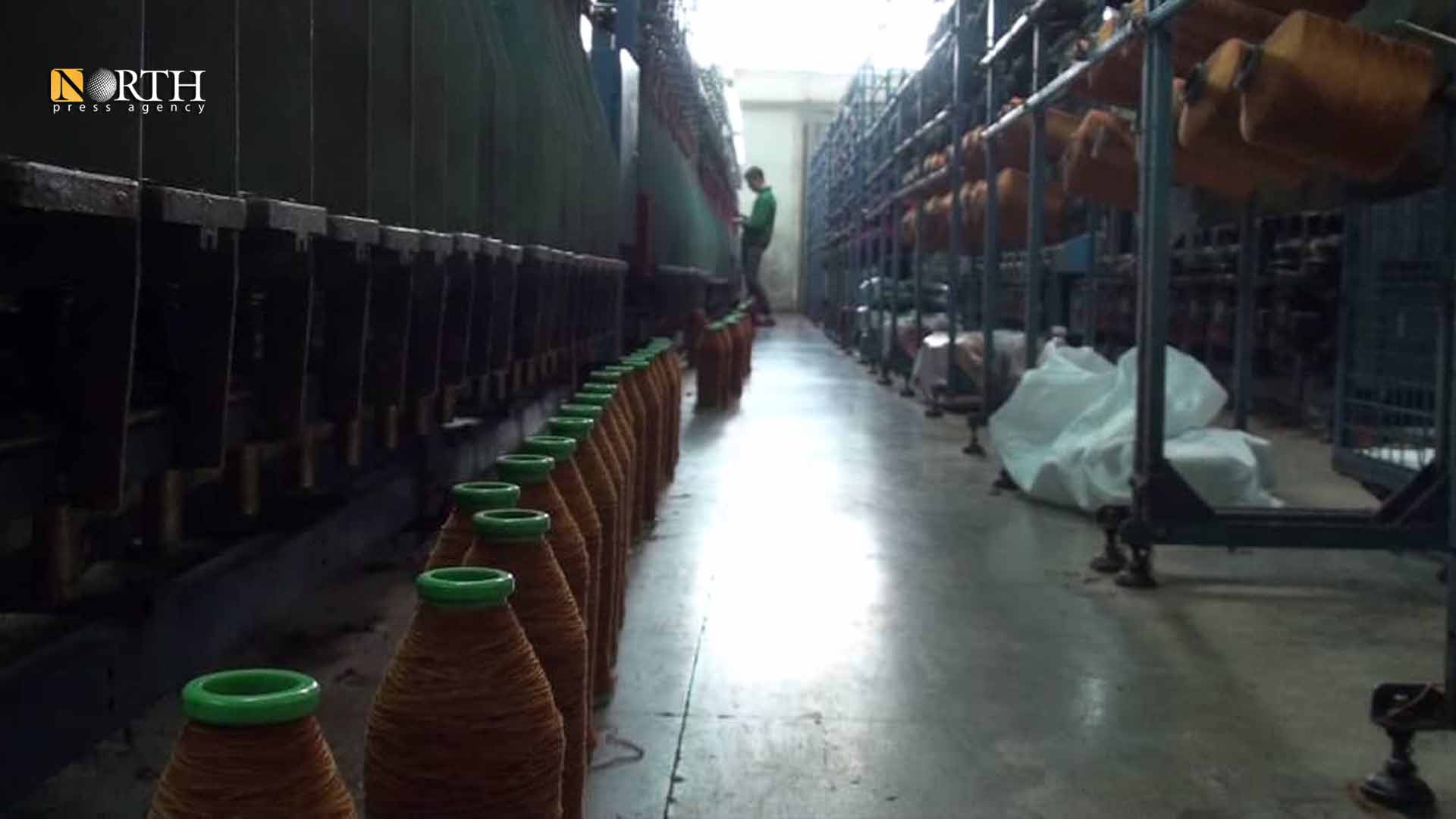ALEPPO, Syria (North Press) – The war in Syria over eleven years has caused huge losses to the industrial sector in the city of Aleppo in northern Syria, which is considered the economic capital of Syria, and resulted in the emigration of nearly 70% of industrialists from the city towards other countries that have the potential for work.
The outbreak of the war led to the suspension of a large percentage of factories and facilities in most of the industrial zone, Sheikh Najjar, Shqeif, al-Kallaseh, al-Qaterji, and Bellayramoun, as their owners chose to go to neighboring countries and other regional countries where working and production conditions are available, according to the industrialists.

Abdulkarim Ferdosi is one of thousands of industrialists who have decided to leave the country, hoping to return as soon as industrial conditions become favorable and stable.
Ferdosi stopped the process of installing textile machines, which he has recently imported spare parts from China, after he made significant steps in rehabilitating his industrial facility in the Sheikh Najjar area, northeast of Aleppo.
The Aleppian industrialist, who inherited the textile industry from his father and grandfathers, decided to close his factory in preparation for emigrating to Egypt in search of more suitable working conditions and better productivity.
Ferdosi told North Press, “since the start of the crisis in Aleppo in late 2012, I left this facility that I built with my efforts until 2016.”
“After the government took control, I came back to be surprised by the extent of the great damage to the buildings and facilities, in addition to the theft and dismantling of machines by the opposition militants, who transferred them to Turkey and sabotaged and stole the contents of it,” he said.
“My return was in the hope that with the government’s re-control, the Sheikh Najjar area would reactivate with all its facilities, according to the government’s statements and its continuous emphasis through its ministers’ tours of the industrial areas in Aleppo on the necessity of reviving the industry and giving it priority,” he added.
“But the return of the government were just words uttered in the media, I equipped my facility with large sums of money, most of which I borrowed,” he noted.
After waiting for more than ten years, he was unable to return to work and production, due to the absence of power sources, the high price of the dollar and government taxes, which prompted many industrialists to leave the country again, “and I was the first who left”.
Slow death
Makkawi, an industrialist in the Shqeif industrial zone in Aleppo, told North Press that the industrial sector was in the crosshairs of the armed opposition’s targets during the eleven years of fierce war.
“The industry is undergoing a slow death and the government has regained control of the industrial areas in Aleppo, and made promises to rehabilitate the industrial structure, but the Aleppo industry is still suffering and being depleted, and the government has only imposed taxes on industrialist,” he said.

He pointed out that the industrialist, who decided to defy the circumstances and risks and took the initiative to rehabilitate his facility after the withdrawal of the armed factions from Aleppo and its surroundings, is still receiving stabs from the government, which has given all its weight to collecting funds and inventing means to reap profits.
Government disregard
The city of Aleppo is the economic capital of Syria, and it is densely populated, located near the Turkish border in northern Syria, and its residents are famous of industry and trade.
More than 70% of the industrial facilities in Aleppo have been idle, destroyed or unqualified since 2012, Abdullatif Hamida, Secretary of the Aleppo Chamber of Industry, told North Press.
The number of facilities throughout the governorate of Aleppo is 33,993, including factories, small workshops, and craft and professional gatherings, he added.
About 11,964 industrial facilities affiliated to the Chamber of Industry distributed over the industrial zones, and about 5,600 factories and workshops have been rehabilitated since a year, only 2,000 of which operate.
He pointed out that the losses of the Aleppo industry were catastrophic during the war years, as Aleppo was exporting to the Iraqi market more than 25 million dollars a day, and the annual sales of the dairy industry exceeded 2 billion dollars in the Middle East.
The industrial power in Aleppo is still being neglected and ignored by the government, and the Aleppo Chamber of Industry worked to address the government to implement the industrialists’ demands, but to all in vain, Hamida told North Press.
According to press reports, the city of Aleppo has been subjected to systematic destruction and an organized theft of most of its factories and homes during the past eleven years, which led to the city’s entirety being cut off from life and its basic components.

